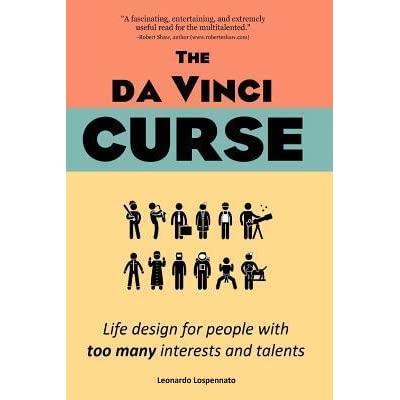Iterate Weekly - Issue 73
This week we're talking about A.I technology to learn more from podcasts, 3-year college degrees, incentivizing e-bikes, Janet Jackson may break your hard drive, and The da Vinci CURSE!
Welcome to issue 73 of Iterate Weekly!
Just a reminder that you can always reply to this email or leave a comment on the web version. I read all of them, and I appreciate the feedback, questions, and insights from all of you.
Let’s jump into this week’s stories.
🤖 Tech
Using A.I. to make podcasts more digestible
Stop me if this story sounds familiar.
You’re listening to a podcast while driving or exercising. You hear tons of useful tidbits of knowledge that you want to remember but have no way of easily saving or taking notes on the subject. The podcast ends and that knowledge slips through the hands of time and you likely never revisit it.
Well a startup called Snipd is hoping to use artificial intelligence to make sure you absorb all of that amazing info you’re getting from your favorite podcast.
Snipd uses transcription technology to create “chapters” that make the content feel more like a structured audiobook rather than a potentially disjointed podcast. And when you hear a section that particularly moves you, it’s easy to snip out the audio and attached a note or reminder.
If that functionality isn’t enough for you, Snipd recently added a “TikTok-esque” feed feature that pulls out highlights from popular podcasts and presents them for quick consumption.
It’s a fantastic example of a new tool that really enhances a familiar medium like podcasting. It’s available to download on iOS and Android so go check it out for yourself!
Anyone have any other ways they retain information they learn from podcasts?
🎓 Education/Productivity
Can 3-year college degrees become the norm in the U.S.?
For most students in the United States, four years is the expected time for them to complete their college degree. Sure, there are special one or two-year programs, but the majority of undergraduate students are allocating four years of time (and four years of expensive tuition money) to receive their diplomas.
But does it have to be that way?
Don’t get me wrong, I’m all for the experience of a traditional four-year college experience. I’ll avoid the cliche of saying it’s the best years of a person’s life, but there is something to be said about not rushing through the time. What students gain in those years is far more than just the course load that can fit into a reasonable semester.
But as college costs continue to skyrocket and students opt for alternative learning journeys, a three-year degree may be far more affordable for people. A new nonprofit university has been formed with this objective in mind. It’s called NewU and it offers a comparatively reasonable $16,500-a-year price that’s guaranteed for a student’s entire duration at the school. What’s even better is that majors have interchangeable requirements so students don’t fall behind if they decide to switch. And the aspect of the school that appears to be winning over applicants is that it will offer bachelor’s degrees in three years rather than four. Courses can be completed online and in-person in Washington D.C.
NewU isn’t alone in its belief of three-year degrees becoming a sought-after part of the college curriculum. Other schools around the country are adding accelerated programs to allow students to graduate faster (and less expensively) while still receiving the same accredited diplomas.
The bottom line is that education shouldn’t be a one-size-fits-all approach. Maybe the four-year degree worked for the highest percentage of students for a long time, but it doesn’t need to stay that way. Kudos to NewU and other schools who are approaching this with flexibility and creativity to ensure the highest number of students can graduate, regardless of how many years of tuition they pay.
Do you think shorter degrees like this will become the norm in the future?
♻️ Health & Environment
Incentivizing e-bike purchases
I am a huge supporter of e-bikes. As I’ve written about not once but twice, my e-bike has really revolutionized the way I get around. I think they’re the present and future of mobility and I’m in favor of any way to make them more affordable.
There are currently over 80 incentive programs around North America to help make it more affordable for people to purchase (or rent) e-bikes. This includes my former home city of Oakland, California which is adopting a program this year to get more electric vehicles into the hands of low-income residents.
Unfortunately, a more comprehensive tax cut was axed from the recently passed “Inflation Reduction Act” that would have provided more widespread tax incentives for e-bike purchases. Hopefully, this act can still move forward on its own at some point in the near future.
Yes, these electric vehicles are still expensive, but they’re also imperative for cities to reach aggressive climate goals over the next few decades. Anything we can do to lower their price is a step in the right direction.
Do you already have an electric bike? What type of incentive would get you to make that purchase?
🛍 Grab Bag
Janet Jackson will break your hard drive
This story was too good to pass up.
Did you ever have an old hard drive crash on you? Super frustrating right? Were you ever a fan of Janet Jackson’s smash hit “Rhythm Nation”? It’s a catchy tune no doubt. Still holds up today. Did you ever think that these two things could be connected?
Yes, Janet Jackson’s music may have caused your hard drive to crash.
It’s true. They’re called “natural resonant frequencies” and they can cause data plates (like those found in older spinning hard drives) to move and malfunction. Ms. Jackson’s hit song just happened to have the perfect frequency to cause a 5400 RPM spinning drive to bug out. This phenomenon was so powerful that it would not only damage the computer that was playing the song but also any hard drives within earshot.
Incredible stuff. I’ll leave you with this. If you’re reading this on a machine that’s running Windows 95, please proceed with caution.
💬 Quote of the Week
“Now I'm a scientific expert; that means I know nothing about absolutely everything.”
- Arthur C. Clarke, 2001: A Space Odyssey
📕Content Recommendation
The da Vinci CURSE: Life design for people with too many interests and talents
This week I’m recommending a book called “The da Vinci CURSE” by (appropriately named) Leonardo Lospennato.
It’s a book that I received as an extremely thoughtful gift from my sister a few years back. As you can probably judge by my writing, I have many interests and hobbies. Some of them may generate income or have career aspirations, plenty of them don’t. My sister saw this in me years ago and it still remains true today.
Many of you may feel the same way, and this book could be perfect for you. I was recently revisiting it while reading a similarly-themed book that I’ll likely mention in this space shortly.
Life is short. Enjoy your hobbies and don’t feel constrained by only one vision of what your career can be!
Hey! I’m testing out some new polling tools that Substack has recently added. Keep your eyes on this section and please help me get some feedback by taking a second to choose an answer in my poll. Thank you!
Thanks for reading, I’ll see you next week!
P.S. - Are you looking for a coach? I’m looking to work with some potential new clients and would love to help you out. Are you struggling with screen addiction? Need some help building positive habits or ditching negative ones? Iterating on a new business idea and need some guidance? If you’d like a free 30-minute consultation chat, feel free to book some time with me here!







Gonna check out Snipd!